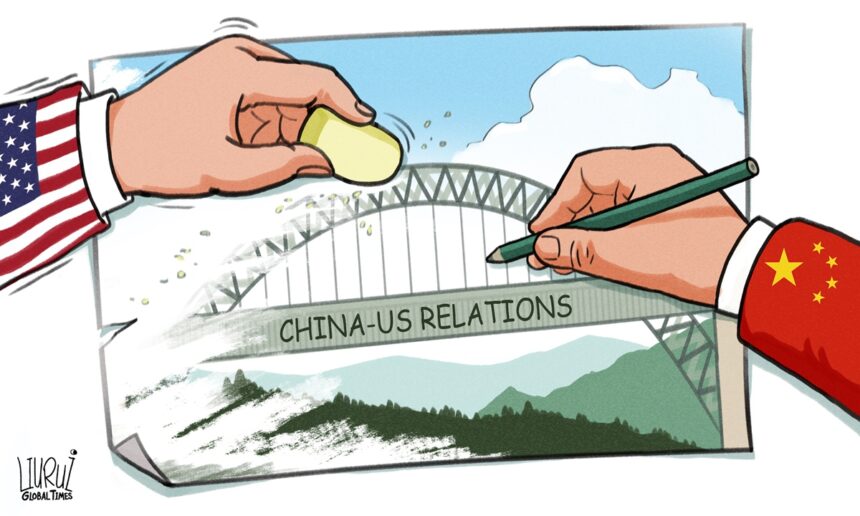The US strategy toward China is increasingly detrimental to American businesses, a reality that has garnered growing attention and concern among them. Companies are beginning to recognize that Washington’s approach toward China is not merely a political issue, but also an economic one that impacts their competitiveness and growth.
In a keynote address to the Centre for Strategic and International Studies on Tuesday, Craig Allen, president of the US-China Business Council, said that with Chinese companies becoming “wickedly competitive,” multinational entities must engage with them to remain globally competitive, the South China Morning Post reported.
Allen’s cautionary message follows the US’ latest restrictive measures on Chinese firms and his remarks underscore the growing concern over the adverse impacts that the current US policy toward China is having on American businesses, pushing them into a precarious situation of seeing long-term competitiveness undercut.
As China’s role in the global value chain continues to strengthen, the significance of collaboration between multinational companies and Chinese companies becomes increasingly clear. This cooperation not only facilitates mutual benefits and shared growth for both parties but also serves as a crucial driver for the deep integration and optimization of global industrial and supply chains.
In this context, when it comes to China-US economic cooperation, the core issue is not that American companies are unwilling to cooperate with China or that they fail to recognize the immense value and necessity of deepening collaboration. On the contrary, many American businesses see clearly the vast markets and limitless business opportunities that can be opened up through partnerships with Chinese peers.
Meanwhile, China has consistently upheld the principles of openness, inclusiveness, and win-win cooperation, actively fostering comprehensive collaboration with the US in areas such as trade, technology, and culture. China continues to strive to create a more stable, predictable, and mutually beneficial cooperative environment for the shared prosperity of companies from both countries.
However, it is regrettable that the current policy direction of the US government is apparently running counter to the spirit of cooperation, presenting a worrying trend. Washington has not only failed to align with the trends of globalization and cooperation, but it has also implemented a series of measures aimed at containing China’s development and “decoupling” from China by severing industrial chains and supply chains. These actions not only force American companies to maintain an unnecessary distance from their Chinese counterparts by increasing various costs but also impose suppression and sanctions on Chinese companies due to some groundless claims.
Just on Tuesday, the US added two Chinese companies to a trade restriction list for allegedly enabling human rights violations, Reuters reported. Last week, the US announced a new round of export curbs on China, adding over 140 Chinese companies to the Commerce Department’s entity list, involving various types of semiconductor products such as semiconductor manufacturing equipment and electronic design automation tools.
The measures implemented by the US government are akin to erecting artificial barriers that severely impede normal communication and collaboration between companies in China and the US. This threatens the long-term prosperity and growth of American businesses. Moreover, it significantly disrupts the stability and efficiency of global industrial and supply chains.
More importantly, the “decoupling” push in the high-tech sector drastically reduces opportunities for cooperation between multinational companies and Chinese companies, potentially leading to a fragmentation of the global technology ecosystem. This fragmentation may result in increased divergence in technological standards and norms, severely obstructing the flow, exchange, and collaboration of technological information, which will ultimately have profound negative effects on global technological progress and innovation.
If the US continues to pursue this anti-cooperation stance, its domestic companies will inevitably miss out on valuable market opportunities and collaborative ventures, placing them at a disadvantage in the global economic arena. Therefore, adopting a pragmatic approach and actively seeking avenues for cooperation has become a necessity for both countries.
Of course, cooperation does not mean the absence of competition. But containment and sanction cannot be the tools for competition. Competition needs to be fair, healthy, and conducive to innovation. Only in this way can we drive sustained prosperity and development in both economies.











